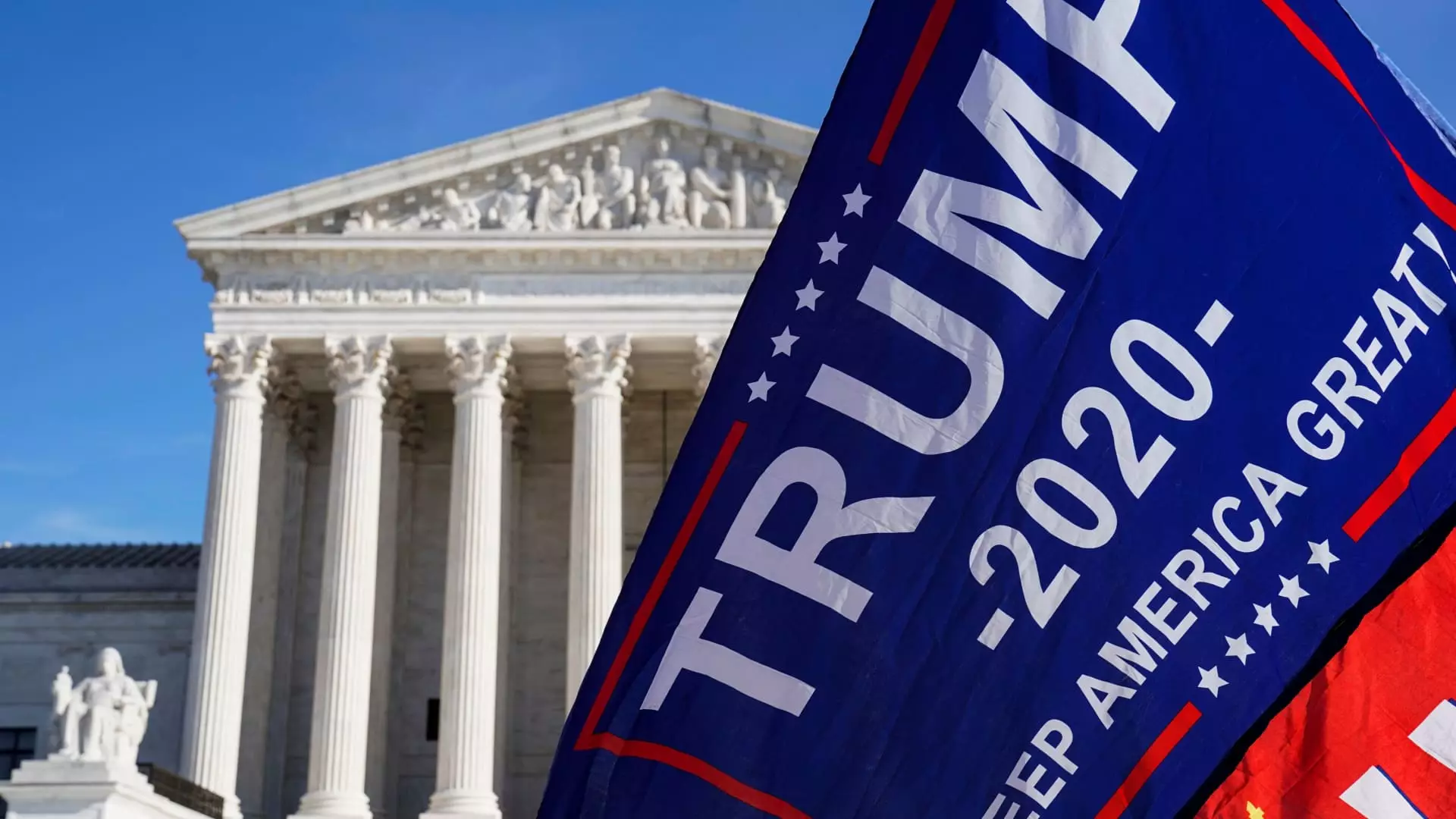The recent hearings at the Supreme Court regarding former President Donald Trump’s immunity from federal prosecution on criminal election interference charges have sparked a deep discussion. Justice Sonia Sotomayor expressed skepticism towards the argument presented by Trump’s lawyers, contending that a president should not be immune from prosecution for official actions taken while in office. This inquiry raises significant questions about the extent of immunity that should be granted to a president, particularly in cases of alleged criminal behavior for personal gain.
The central issue at hand is whether an ex-president can be held accountable for official acts conducted during their tenure in office. This question holds existential weight for special counsel Jack Smith’s prosecution of Trump regarding efforts to overturn the 2020 election results. The ruling from the Supreme Court will not only impact this specific case but could also have far-reaching consequences for other pending criminal charges against Trump that are linked to his actions as president.
The arguments presented before the Supreme Court reflect a broader debate on the extent of constraints that should exist for a president. While Trump’s legal team argues that the threat of potential prosecution hampers a president’s ability to carry out their duties effectively, Justice Ketanji Brown Jackson raised an opposing concern. Jackson highlighted the dangers of allowing a president to act with impunity, potentially turning the highest office in the country into a breeding ground for criminal activity.
The legal battles surrounding Trump’s immunity claim have led to delays in the proceedings. The Supreme Court’s decision to take up the case has pushed back the election interference trial, raising uncertainties about the timeline for potential legal actions. Despite efforts to expedite the process, the court’s inclination towards thorough consideration means that a final ruling may not come until late June or early July, if not later.
Critical Voices and Legal Analysis
Legal experts critical of Trump have voiced concerns regarding the delays caused by the ongoing legal disputes. Norm Eisen, a former aide to House Democrats during Trump’s first impeachment, criticized the Supreme Court for prolonging the matter by keeping Trump’s immunity claim alive. The indictment brought forth by Smith against Trump contains serious allegations, including conspiracy to defraud the United States, highlighting the gravity of the situation.
The outcome of this legal battle could have significant ramifications on the political landscape, especially in the lead-up to the presidential election. Trump’s attempts to delay his trials until after the election underscore the political stakes involved in these legal proceedings. The charges against him directly relate to his efforts to undermine the democratic process and cast doubts on the legitimacy of the 2020 election results.
The Supreme Court’s consideration of Trump’s immunity from prosecution raises crucial questions about the boundaries of presidential power and accountability. The implications of this case extend beyond individual legal battles to encompass broader concerns about the rule of law and the integrity of democratic institutions. As the legal proceedings unfold, the eyes of the nation are fixed on the highest court in the land, awaiting a decision that could shape the future trajectory of American politics.



Leave a Reply